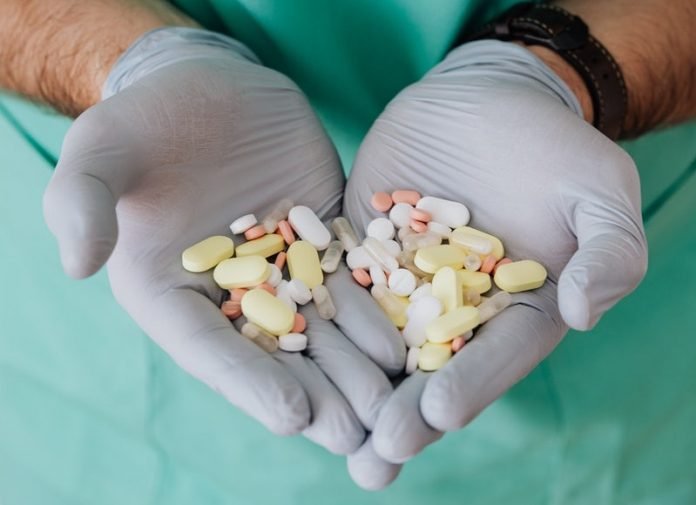
In a new study, researchers found that the antiviral drug plitidepsin is between 10 and 100 times more effective against SARS-CoV-2, including the new UK variant than drug remdesivir.
They tested the efficacy of the drug plitidepsin on the newly identified UK variant mutant strain B.1.1.7.
They found plitidepsin was around 10 times more potent than remdesivir in vitro (in human epithelial cells) – at reducing B.1.1.7 infectivity.
The finding mirrors the results of the larger arm of the study based in the US.
The research was conducted by UCL scientists and others.
For the US study, the team screened numerous clinically approved drugs, in order to identify those with inhibitory activity against SARS-CoV-2.
Specifically they were looking for ‘host-directed therapies,” those which target host (human) proteins, rather than virus proteins, which are usually targeted to inhibit infection.
Plitidepsin, also known as Aplidin, is a novel drug approved by the Australian Regulatory Agency for the treatment of multiple myeloma, and is part of numerous other Phase II/III clinical cancer trials around the world.
The US arm of the study found that plitidepsin was 27.5 times more potent than remdesivir in vitro, at inhibiting (preventing further infection) SARS-CoV-2, the virus that causes COVID-19.
This research was also carried out in vitro—in cells in the laboratory, not in patients.
In addition, the study found that plitidepsin was 100 times more effective than remdesivir at reducing the viral replication in the lungs and demonstrated an ability to reduce lung inflammation—one of the most serious side effects of COVID-19.
This element was conducted in vitro in an established mouse model of human lung cells.
The UCL study only studied the UK variant and found comparable anti-viral activity in vitro against B.1.1.7.
These studies show plitidpesin is a highly potent inhibitor of SARS-CoV-2, and is much more effective than the widely approved remdesivir against both early and more recent lineages of the virus.
One author of the study is Associate Professor Clare Jolly (UCL Infection & Immunity).
The study is published on the pre-print server bioRxiv.
Copyright © 2021 Knowridge Science Report. All rights reserved.



